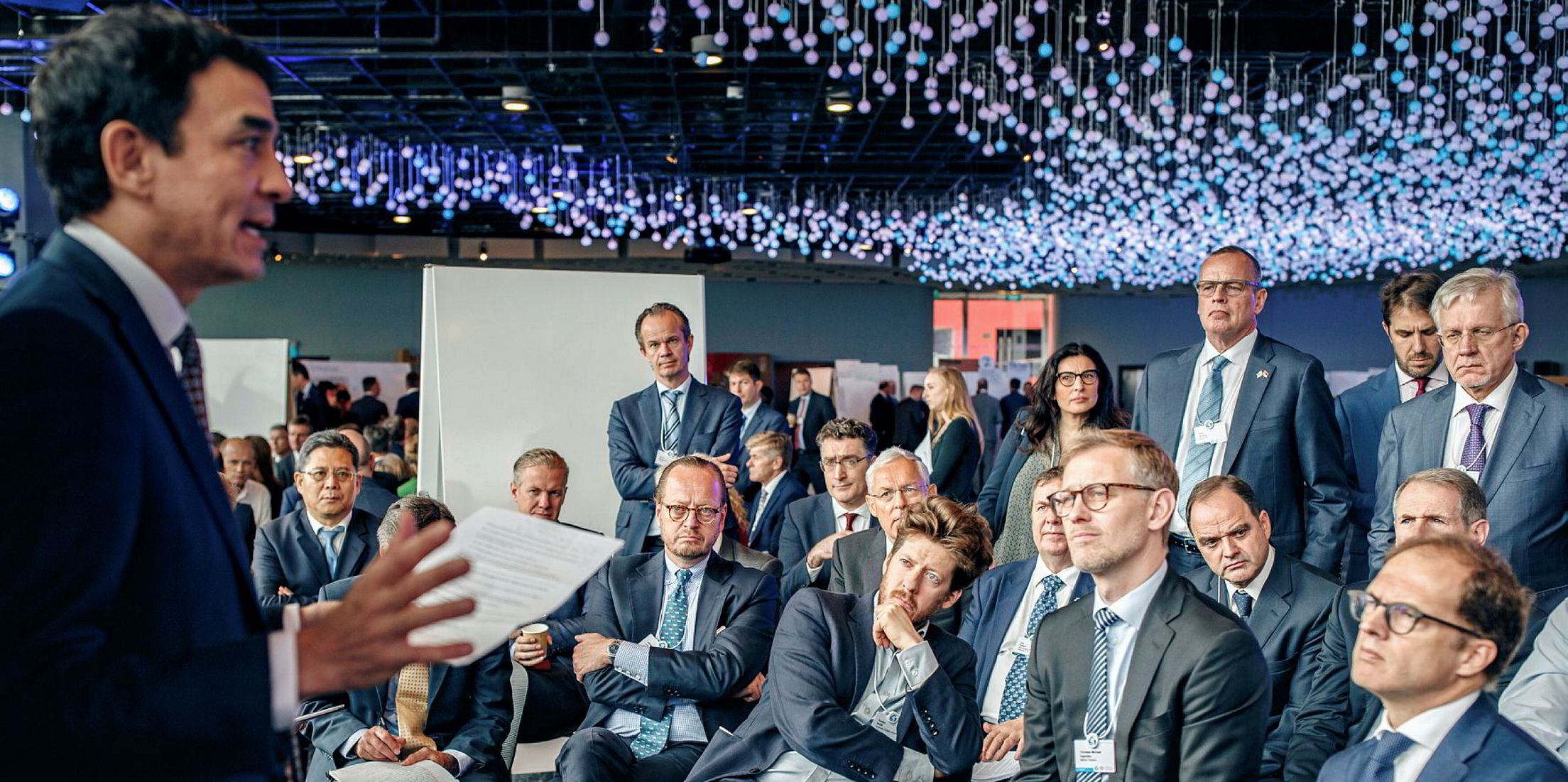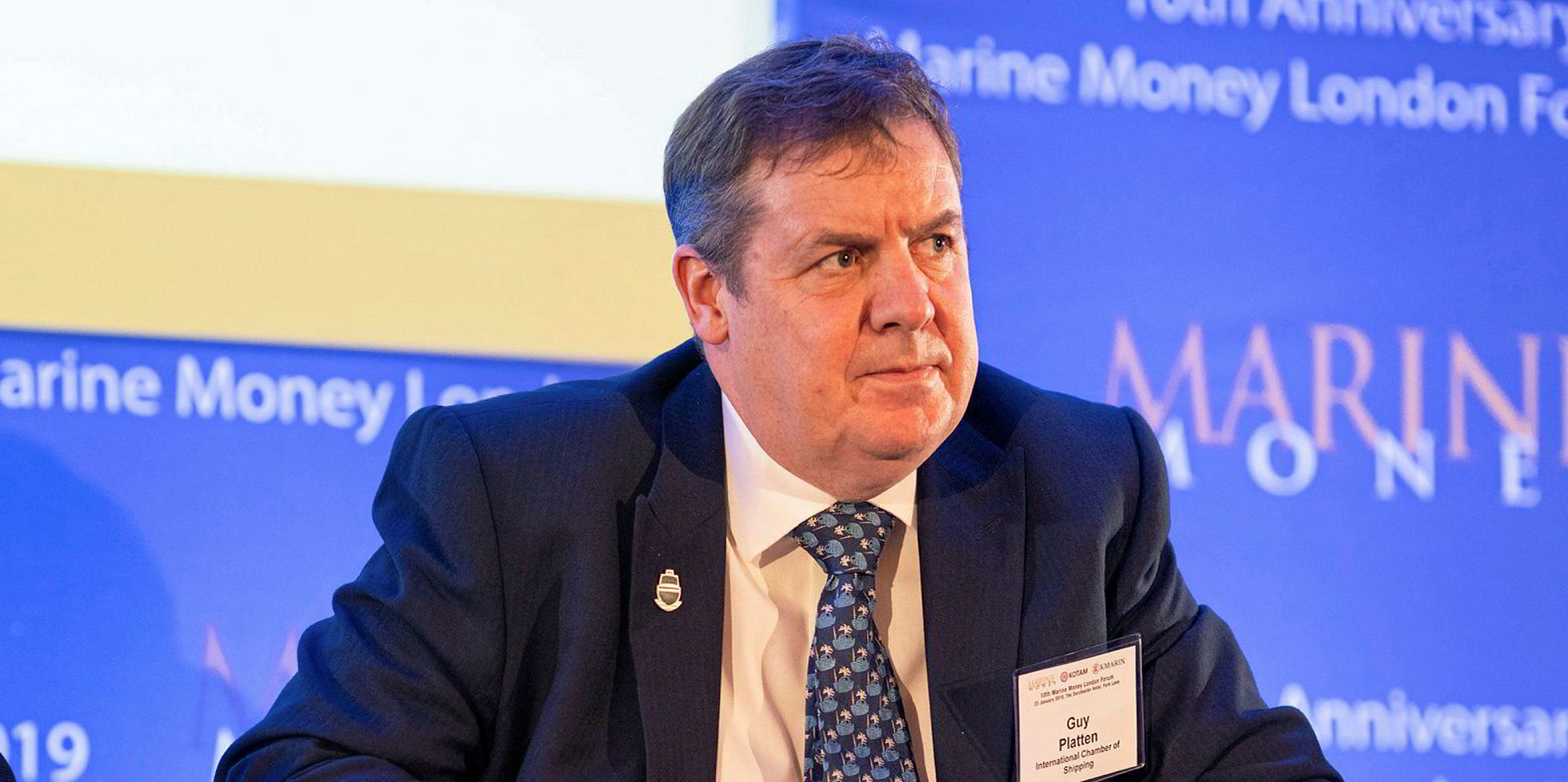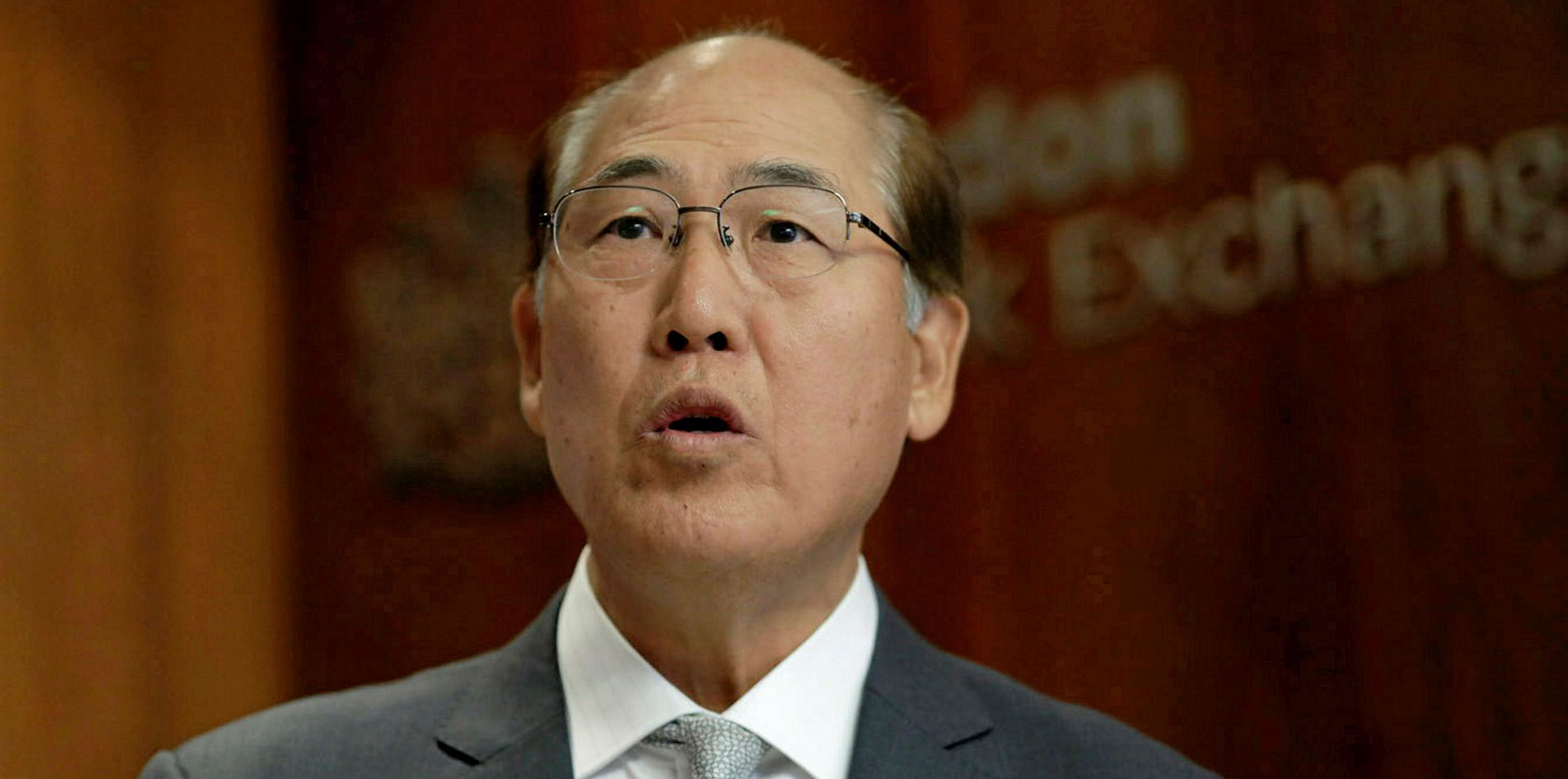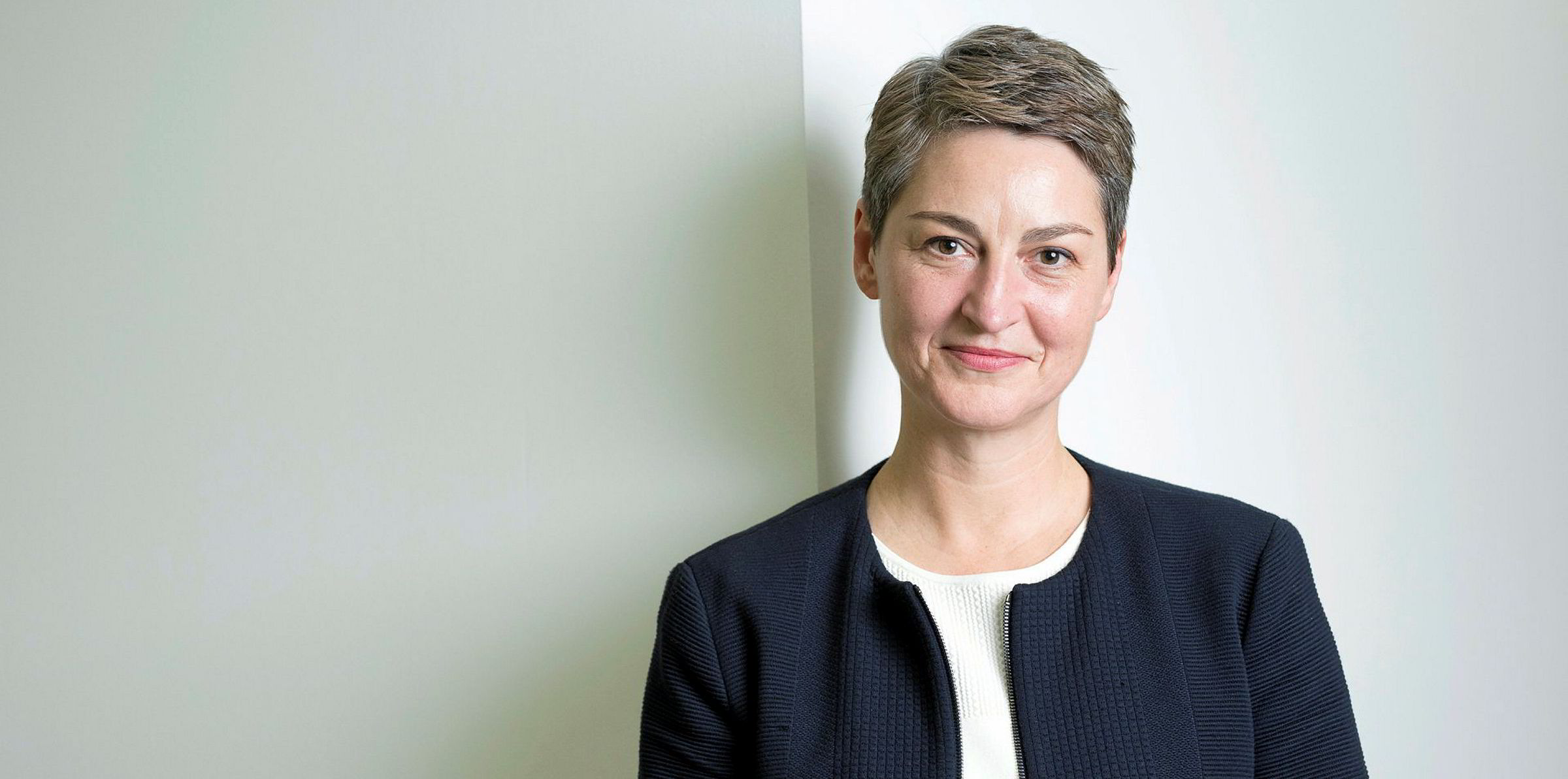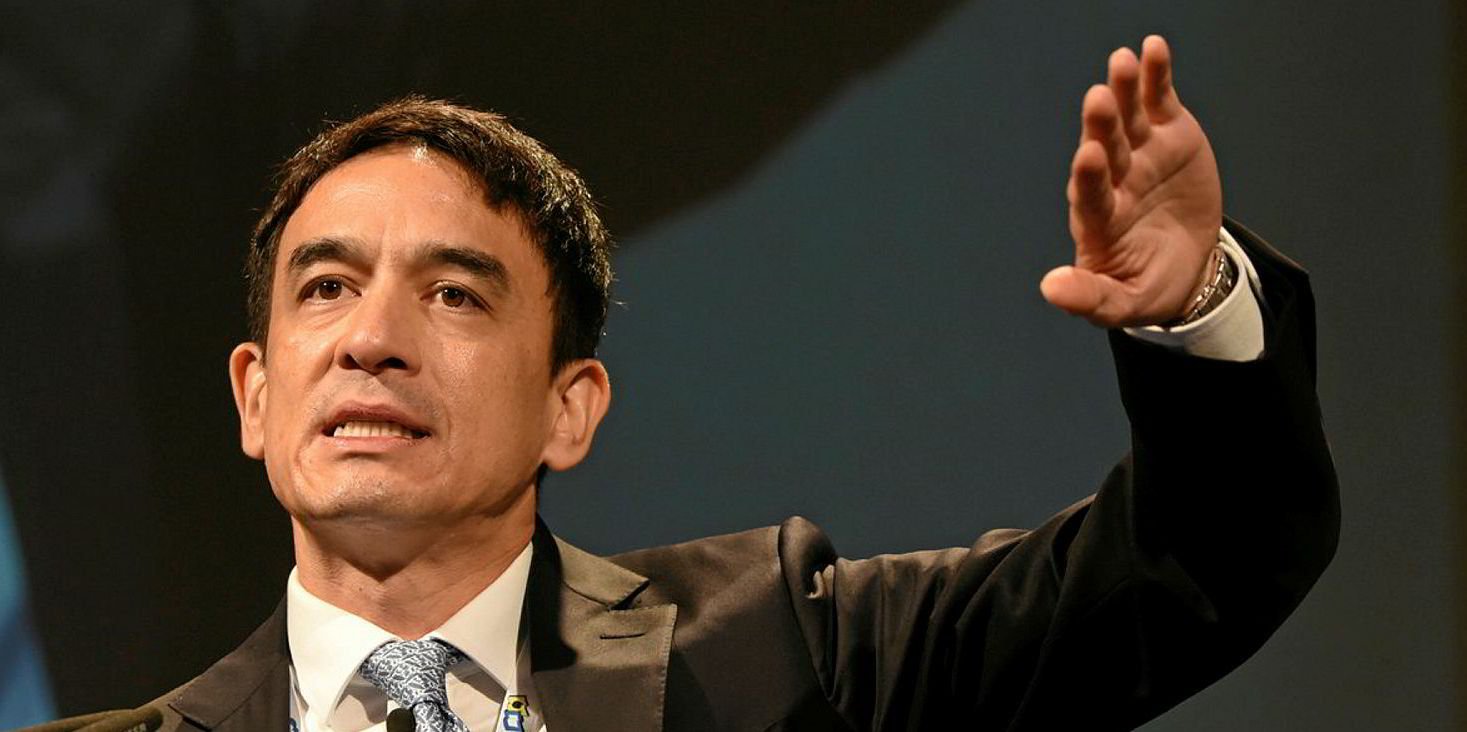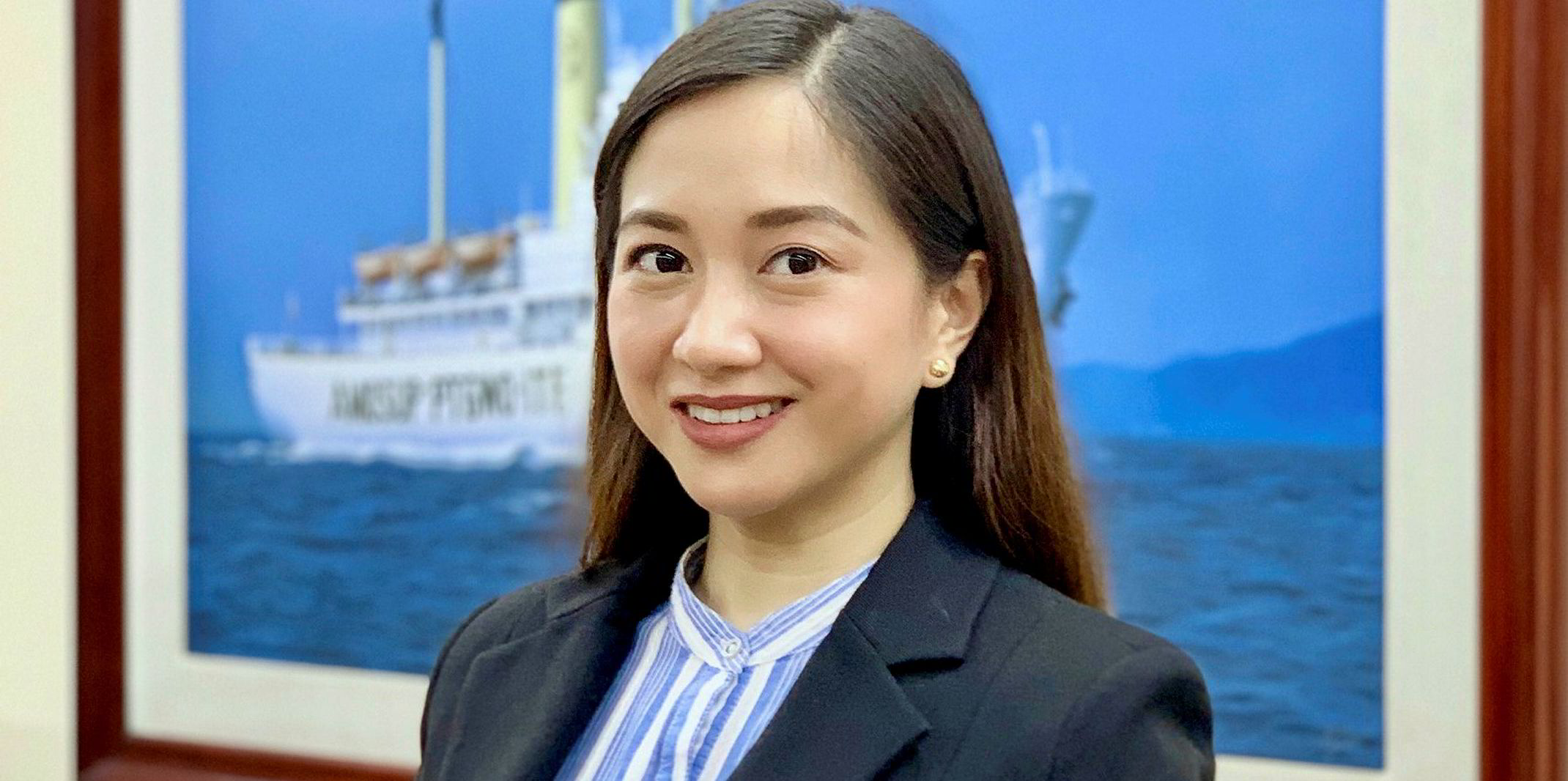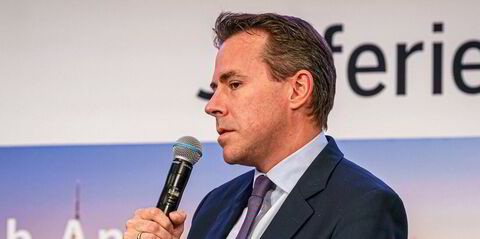Decarbonisation, crewing and workforce diversity are high on the agenda of shipping's decision makers.
During the online work group discussions of the Global Maritime Forum (GMF) in the past week, shipping executives had heated discussions over how to reduce greenhouse gas emissions.
Many favoured a global carbon levy on bunker consumption managed by the International Maritime Organization, which would route the money back into incentivising investments in low-carbon shipping.
“Carbon levy could be something very critical,” International Seaways president Lois Zabrocky said in a closing plenary on Wednesday. “Those funds to be raised need to come back to shipping either through reduced financing expenses or incentives, so that owners can benefit.
“Not just taking money out of the system. That does not take us forward.”
Regional rules
But some argued that the industry should be more willing to accept regional carbon regulations, such as the European Union’s inclusion of shipping in its emission trading system.
“The ideal solution is a global carbon levy, a level playing field,” Maersk Tankers chief executive Christian M Ingerslev said.
“However, if we focus on only achieving a global carbon levy, which currently [has] limited political support, we risk seeing no progress and we leave the door open for sub-optimal political interventions.”
Some industry groups — including the International Chamber of Shipping — strongly oppose regional regulatory frameworks, which they see as unfair to some shipping companies.
But Ingerslev reckoned that, if designed well, a regional carbon tax can still creative incentives for stakeholders to invest in low-carbon technology.
“It will also create confidence among countries that a levy can work, therefore increasing the likelihood for a global levy,” he added.
Infrastructure investments
Most experts believe new types of low, or even zero-carbon bunker fuels would be required to reach the IMO’s target of halving emissions from international shipping by 2050.
However, energy firms are reluctant to develop bunker infrastructure, as demand for such fuels has yet to emerge. And shipping companies are not willing to build vessels powered by low-carbon fuels because infrastructure is not available.
Describing the situation as a “chicken and egg” dilemma, Euronav chief executive Hugo De Stoop said shipowners should form a coalition that commits to buy the new fuels, assuming their prices are competitive against oil-based fuels.
Moreover, governments should provide subsidies to kick-start large bunker infrastructure projects, he added.
“Carbon levy is necessary, can play a major role in equalising the costs between green fuels and fossil fuels, and provide additional subsidies to large infrastructure projects,” De Stoop said.
“For that reason, we would strongly favour an IMO initiative rather than a regional or continental scheme.
“We believe any capital raised by a carbon levy outside of the IMO is unlikely to come back to shipping.”
Crew charter
First held in 2018, the GMF has emerged as arguably the industry’s most important high-level meeting due to the strong attendance of senior executives.
Some initiatives that affect industry practice, such as the Poseidon Principles and Sea Cargo Charter, were born out of forum discussions.
New dialogue platforms are proposed on how shipping can combat climate change and how funding can be directed to the IMO’s 2050 goal.
Some executives also called on maritime stakeholders to study the best ways to solve the industry-wide crewing crisis.
With travel restrictions across the globe to control the coronavirus pandemic, industry estimates suggest at least 300,000 seafarers are having trouble completing their shifts and returning home.
The industry should develop a standard approach in changing crews that can cover virus testing, repatriation procedures and other matters, Ocean Network Express chief executive Jeremy Nixon said.
“We are looking for all GMF members to come on board, and we want to create a strategic industry crew-change task force,” he added.
This team would study industry protocols and aim to establish industry standards of crewing during the pandemic. This could be developed into a charter that industry participants can “sign up and be held up to”, Nixon said.
Focus on diversity
Some observers hope that more companies can provide figures on the gender and geographical balances of their workforces, and share their practice in promoting diversity.
“We really need to create some transparency around what is the current status, what [companies] are making progress or not,” Cargill Ocean Transportation president Jan Dieleman said.
Moreover, Dieleman said executives are paying more attention to the inclusion of staffers from different backgrounds.
“It’s not just hiring and training, but keeping them,” he said. “Inclusion and diversity really are good for business.”
